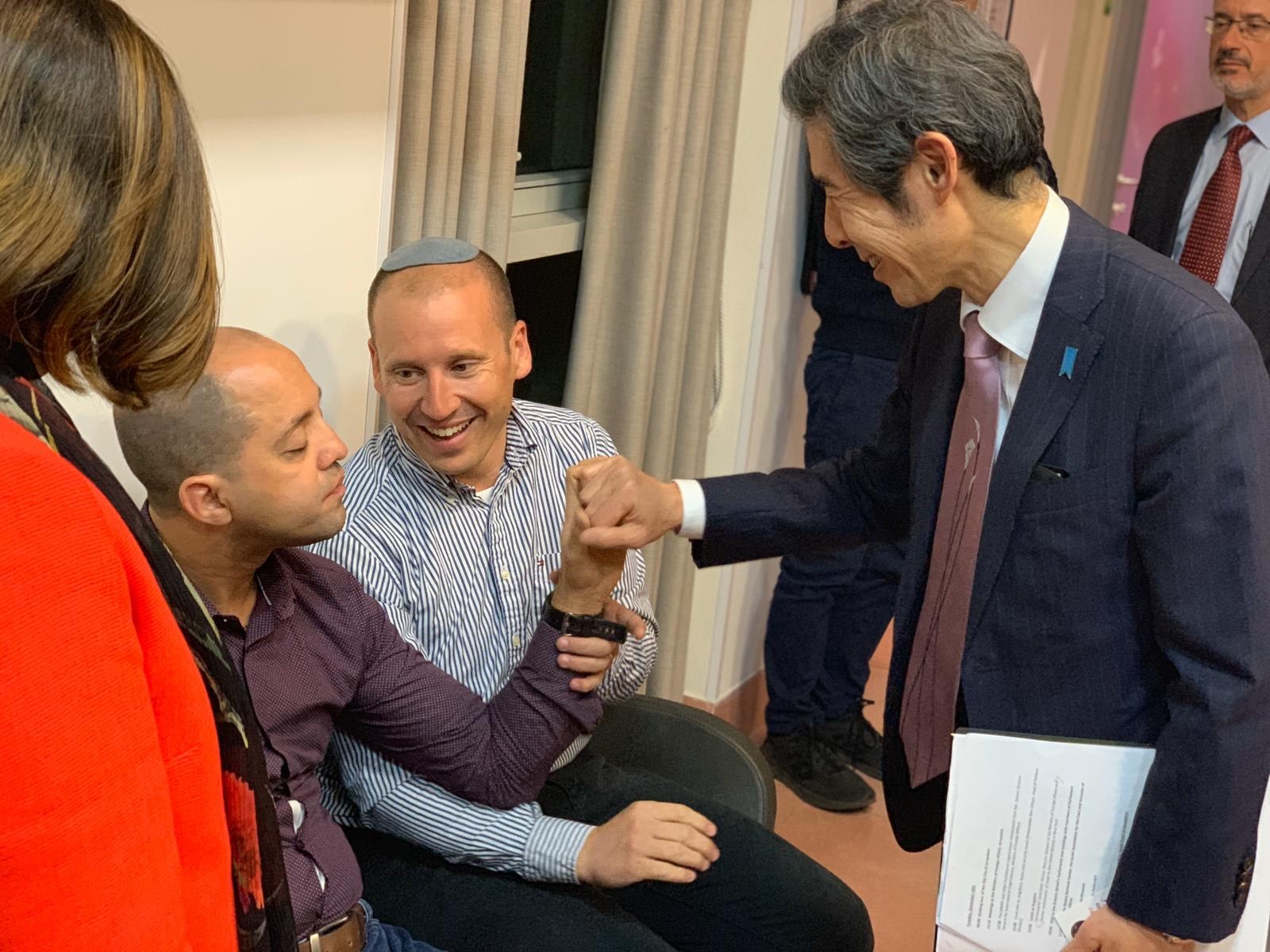UN Human Rights Council Comes to Shalva to Experience Humanity at its Best
Ambassadors from across the globe recognize Shalva’s disability care and inclusion programs as models of human dignity, inspiration for social services in other countries.
Ambassadors representing countries from 4 continents, comprising the UN Human Rights Council in Geneva visited the Shalva National Center in Jerusalem to learn about Shalva’s unique programs for people with disabilities and their families. Some of the countries represented in the UN delegation included the Czech Republic, Guatemala, Italy, Japan, Slovakia, as well as countries across Africa.
“I was very impressed with the children. They were smiling and seemed to have big hope for the future,” says His Excellency Mr. Ken Okaniwa, Deputy Permanent Representative of Japan to the UN. “I commend the staff of this facility for opening up the possibilities of children.”
“From the first time I came to Shalva, years ago, I was so moved,” says Her Excellency Ms. Aviva Raz Shechter, Ambassador of Israel to the UN who participated in the tour. “I decided that I will bring my colleagues, in whichever capacity from all over the world, to see this amazing place.”
The UN Human Rights Council met with Shalva’s program participants and professional staff as well as Yossi Samuels who is the inspiration behind Shalva’s establishment. Yossi was rendered blind and deaf among other disabilities following an injury during his infancy. His parents, Kalman and Malki Samuels, established Shalva to support children and families coping with disability. The thirty-year-old organization has developed pioneering rehabilitative programs over the years which have become staples of Israel’s social policies concerning disability care and inclusion.
The UN delegation came to Israel for a brief five days, and amid visits to the Knesset and private meetings with Israeli President Rivlin and other dignitaries, the group insisted on including the Shalva National Center in their packed schedule. “We also have inclusion programs where children without disabilities and children with disabilities are together. We see how this benefits everyone,” says His Excellency Mr. Juraj Podhorsky Ambassador of Slovakia to the UN. “There is much to learn from the optimism at Shalva.”
“There is so much to learn from Shalva, from the professionalism and from the treatment methods,” says Dr. Ariel Tenenbaum, Director of the Hadassah Medical Center’s Down Syndrome Center who serves as Shalva’s Medical Advisor and member of the organization’s Research and Development Committee. “I think it’s a wonderful thing that Shalva shares its knowledge. What we do does not stay in Shalva- it reaches far beyond,” explains Tenenbaum who escorted the ambassadors on the tour.



